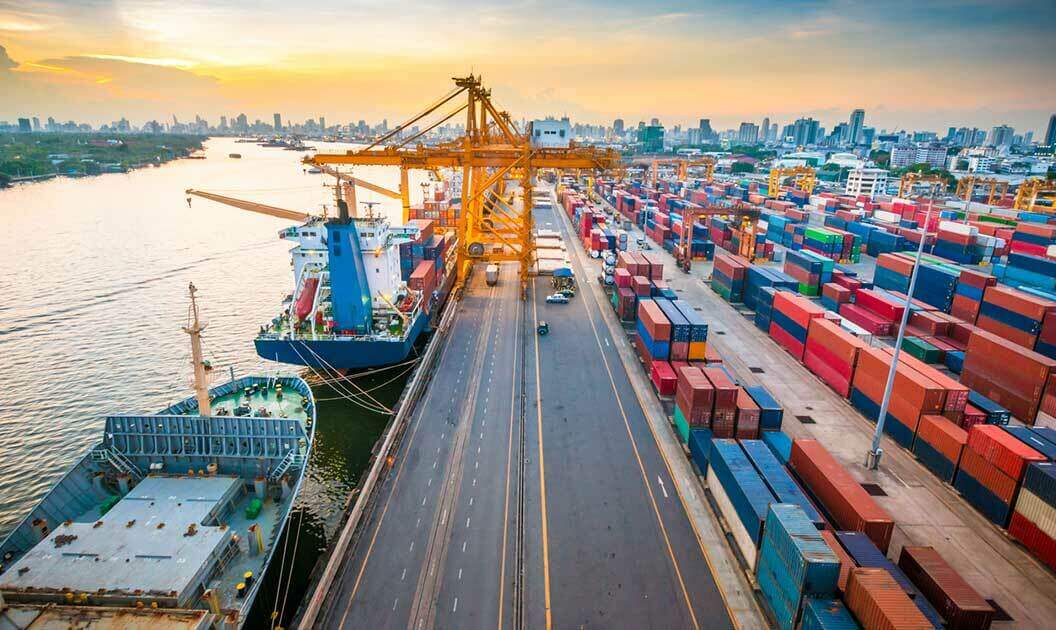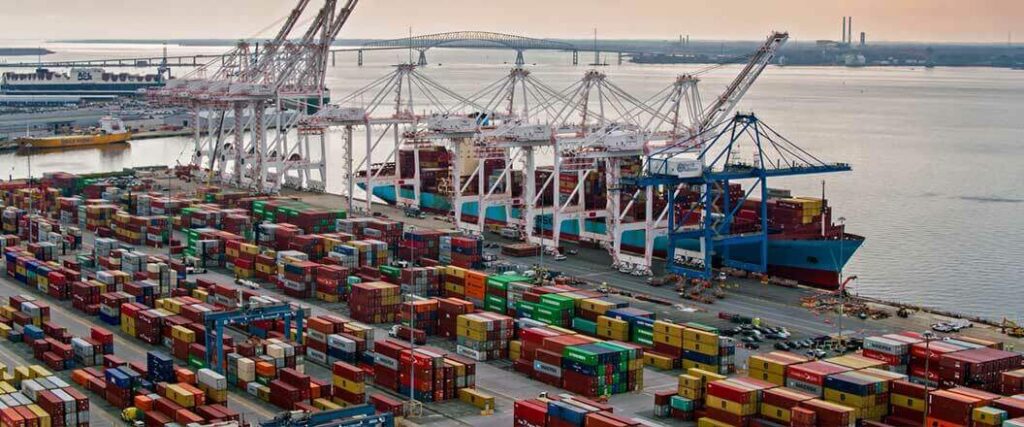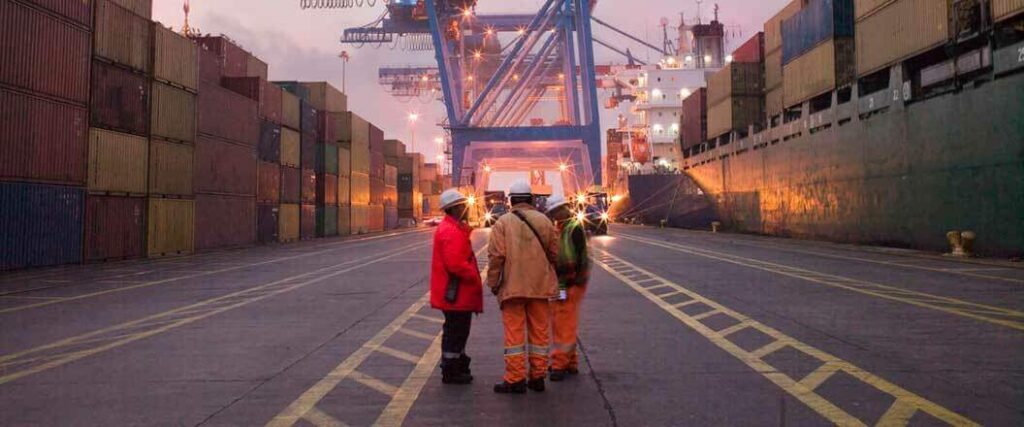
When looking into how to get an import or export license, start by checking requirements with Customs and Border Protection (CBP). If a license or special permit is required, you must apply for it through the agency that has oversight over that product. Licenses can cover multiple shipments within a set time depending on the agency and product.
It’s important to determine license and permit needs before purchasing goods from suppliers. This will help you avoid potential penalties during the import or export process.
Following this quick and easy guide will provide you with the information necessary to determine when and how to obtain an import/export license.

Speak to one of our Licensed Import Consultants and get the help you need.
If your business is involved in global trade, as either an importer or an exporter, you’re going to come across licensing needs. The size of your business isn’t relevant in this case.
Large or small, there are specific actions that a company will need to take.
Once a business has the necessary license, it’s usually a matter of making sure it stays updated on a yearly basis. Also, remember that these licenses are specific to U.S.-based requirements. Importers, especially, should be aware of this.
When you purchase goods from a supplier, they may not be able to confirm whether the product needs any special permissions or not. They will happily sell you the products and have you figure out the rest.

Before you apply for an import license, you must first determine whether the product you are importing requires one.
The CBP maintains a guidebook that classifies various types of products and the federal agency that regulates them. This will get you started in the right direction, but you’ll still need to reach out to the individual federal agencies to then apply for those licenses or permits.
Some common agencies to check with for licensing requirements include the:
This is by no means an exhaustive list. Due to the great variety of products imported into the United States, a number of federal agencies are involved. At times, you may also have to obtain a state or local government license for imports as well.
Once you have narrowed down which agency you need to get a license through, the actual application process is mostly standard.
To get an import license, follow these steps:
As simple as these steps sound, the information required on applications can be very specific. Working with a customs brokerage firm to prepare and file for licenses on your behalf is possible. This will reduce mistakes and hopefully improve the turnaround time for applications.
Let’s now take a closer look at other challenges you may face throughout the application process.
Variety is the spice of life, but it’s also what makes the import licensing system confusing, even for experienced importers.
Common challenges within the application process include:
Simply put, there are a number of details that can easily be overlooked. Let’s take a look at ports of entry, for instance. There are over 300 ports in the United States between ocean terminals and airports, and sometimes they require specific procedures or permits for specific products. Determining your port of entry will therefore play a role in licensing and permit acquisition.
Know your products well and always have the information listed below:
Gathering all of this information before the shipping process even begins can assist in guiding you to the needed agency to apply for an import license if you’re struggling with finding the right one.
Thankfully, there are a number of resources that can help. At ports, you can contact a CBP import specialist or entry specialist.
These individuals are regularly assigned to specific category groups, so they can answer questions related to your products. However, finding and then getting a hold of such people can be a challenge in itself.
While it is possible to go at it on your own, seeking the help of a professional customs brokerage firm can save you both time and money. Too often, we hear from new importers that waited until their shipments were in route before seeking professional advice.
Such individuals end up facing thousands of dollars worth of fines and inspection fees that could have been avoided.
USA Customs Clearance offers 1-on-1 consultations with licensed customs brokers to help you get the answers you need before it’s too late.

Worried about the Strict Regulations? Ask Our Experts.
Our Licensed Expert Consultants Will Personally Guide You.
All import licenses come with a fee, but few agencies provide that information up front. In some cases, it’s also easy to confuse an import license fee with the tariff and duty fees.
The CBP itself does not require or issue import licenses, but they will enforce the license requirements of other agencies.
For example, the FDA requires prior notice of import for many products, but it isn’t an actual license that you need to pay for. Most of the fees on their site are related to the taxes that are collected upon entry according to the product’s rate of duty.
For agricultural items and animal products, the USDA has several import permits depending on the exact nature of the import. Each of these have their own fees, but they aren’t posted until you begin to check out of their eFile system.
You’ll find similar situations across other agency sites.
Other fees associated with importing, but not specifically import licenses include:
The best way to get an estimate of costs before you start the process is to work with a customs brokerage service. Brokerage firms become familiar with these processes and price structures.
Getting an export license comes with its own share of complications. Fortunately, 95% of exports do not require a specific license. For the five percent that do, the number of agencies to apply through is significantly shorter. However, requirements are stricter because they typically have to do with goods related to national security or technologies with potential military applications.
The two agencies most involved in exports are the Bureau of Industry and Security (BIS) and the U.S. Department of State’s Directorate of Defense Trade Controls.
The regulations put in place on exports are designed to determine:
While developing your plan to export, you should also consider that the countries you are exporting to may require a separate import permit or license on their end. This may be the case whether the United States requires an export license or not. If you know which country you will be exporting to, take the time to determine if you need to apply for such licensing.
Of the small percentage of products requiring a license for export, the majority involve goods, software, or technology that is considered ‘dual-use’. These are products or services with uses in commercial and military or proliferation applications.
To determine whether your planned exports fit this description, check the Commerce Control List (CCL) maintained by the BIS.
This section of BIS is known as the Export Administration Regulations (EAR). When a commodity falls under EAR and appears on the CCL, it’s assigned an Export Control Classification Number (ECCN). Being on the list does not automatically mean that an export license is needed, but it does make it more likely.
If an item is designated as an EAR99 on the CCL, it generally indicates that a product does not require a license. However, it is always better to research ahead of time to determine whether that status is dependent on the product destination, end user, or end use.
The CCL also maintains lists of export restrictions for other departments. This includes the:
Other departments which oversee very specialized exports are the Nuclear Regulatory Commission and the FDA.
Exemptions exist for shipments under License Exemption BAG (Baggage) or Gift Parcels and Humanitarian Donations (GFT).

Once you have determined that you need an export license, you can complete an export license application online through the BIS. The BIS maintains an online electronic licensing system called SNAP-R which allows registered users to submit export license applications.
It’s important to note that the application process can also be completed with help from a third party, such as a certified export specialist. SNAP-R allows for a Third-Party Administrator to submit export license applications on your company’s behalf. To do so, they must be granted Power of Attorney by the exporter and given access to the CIN.
To complete an export license application, complete the following steps:
Once these forms are filled out, they become official export documents and cannot be altered. Changes have to be done in a new application and a record is kept of all changes unless you specifically receive a request that states further information is needed.
Validations messages that declare you have been approved will contain the export license as well as detail any condition of that license. A ‘Returned Without Action’ is the standard response to a canceled application.
The process is slightly more involved compared to an import license. Because of the sensitive nature of these types of exports, it’s highly recommended that you work with a certified export professional to ensure license approval.
Errors with export license applications can have serious legal consequences. We’ve put together a list of best practices that can help exporters avoid legal issues and make sure their business venture is successful.
We highly recommend you seek out the services of export specialists. Our licensed customs brokers can help you find the export support you need.

Speak to one of our Licensed Import Consultants and get the help you need.
In the complex world of global trade, import/export licenses serve as a passport for your goods. It allows them to enter or leave the U.S. legally, and helps agencies keep track of in and outgoing goods.
Do other nations require you to show these licenses? In most cases, no. It’s up to the importer (or exporter) to do their own research. Foreign and U.S.-based suppliers aren’t responsible for import compliance needs. They are still getting paid for the products, even if you end up not being able to get them past the border.
When goods are stopped at customs, the regulatory agencies are looking at the company or individual trying to ship the products, not at the company that sold them.
Even if a license is not required, all goods are subject to some form of regulation. This can come in the form of entry and exit forms or other required documents.
These may include:
Regardless of what a business is exporting or importing, it’s best to seek the advice of professionals before starting. Getting the right information before goods are in transit can help businesses make good decisions.
Other import regulations to consider include:
A licensed Customs Broker, such as those available at USA Customs Clearance, will be invaluable in navigating these various regulations. Customs brokers keep up with changes to regulations and can assist in completing the needed documentation for all your business needs.

Import and export regulations can change unexpectedly. Geopolitical conflicts, health crises, and unrest in different parts of the world can increase the odds of regulations changing unexpectedly.
Staying updated can help you adjust your import and export plans accordingly and avoid penalties and fees.
Outside of social and political changes, sometimes it’s the products themselves that are changing. New materials and advancing technology can alter a product’s licensing requirements.
Changes in commodity classifications can be found in:
If you are unsure of the import status of your product or whether any changes are affecting it, you can check on specific review rulings through the Customs Rulings Online Search System (CROSS).
Whether you’re unsure of the process for reviewing the guidelines for license needs or are struggling with providing the right information, a Licensed Customs Broker can help. Customs brokers are well versed in reviewing product shipping guidelines and can guide you through the process of correctly applying for an import license.
Even better, a broker can help with other import documents such as:
For anyone preparing to import a new product or trying to start up their own business, getting the help of industry professionals early on can be the difference between succeeding or not.
Learning how to get an import export license is only the beginning. Navigating the various regulations and departments is the real time-consuming part. USA Customs Clearance can provide you with the services of a Licensed Customs Broker to make sure your shipments are properly classified and licensed.
Rather than risk having freight stuck in customs and possibly getting seized, speak with licensed import consultants that can guide you through the application process and increase the chances of successful business.
Find the right help today:
Schedule your time today by calling USA Customs Clearance at (855) 912-0406 and take the guesswork out of applying for import or export licenses.
 Copy URL to Clipboard
Copy URL to Clipboard

Google is changing how it surfaces content. Prioritize our high-quality guides and industry-leading coverage in search results by setting usacustomsclearance.com as a preferred source.
I am really interested in how to get an export and import license thanks
Where can I apply for an import and export license?
Send some help through my Email. Kennbrobby@gmail.com.
N/A
Where to apply for Import and Export license?
I am really interested in how to get an export and import license .....thanks
How do I get an import export license
I am really interested in how to get an export and import license .....thanks
How do I get an import export license
How do I get export license to send my plants out of the US for personal use.
I need to know how to get an import and export license?
Need to see if I need an import liscence for importing blankets and garments